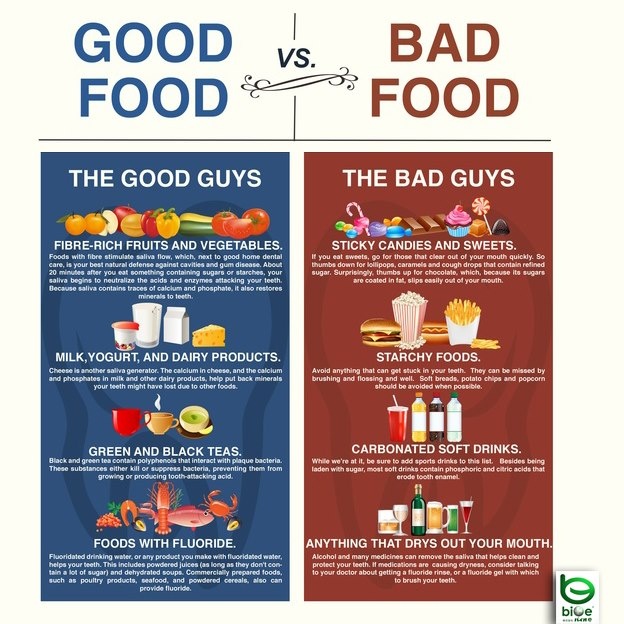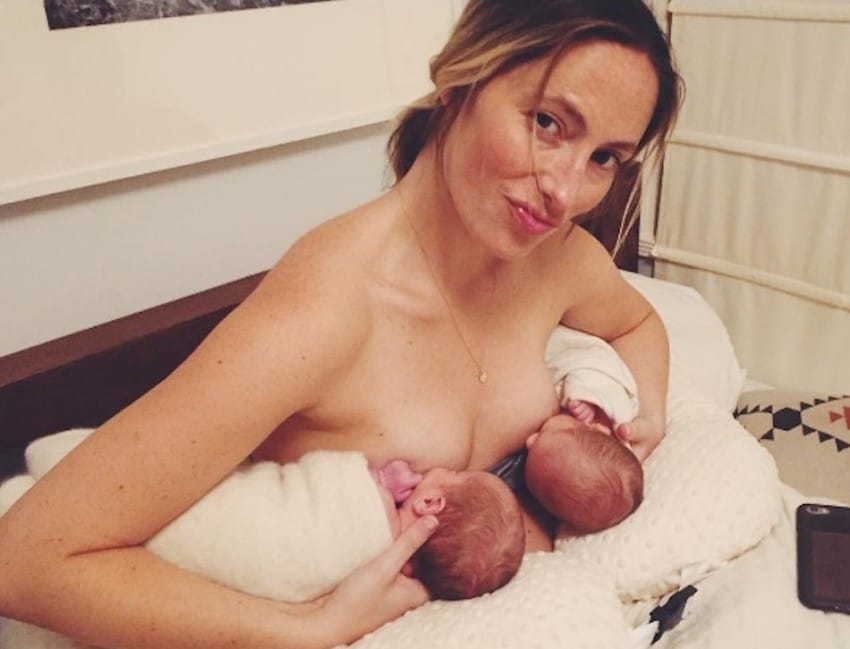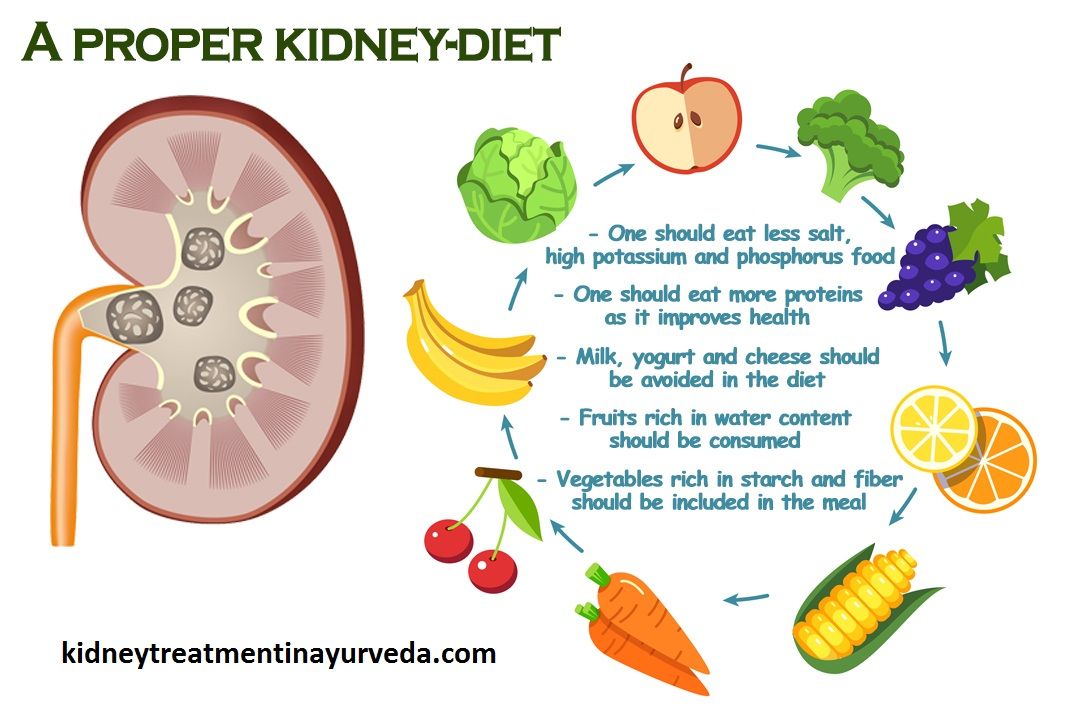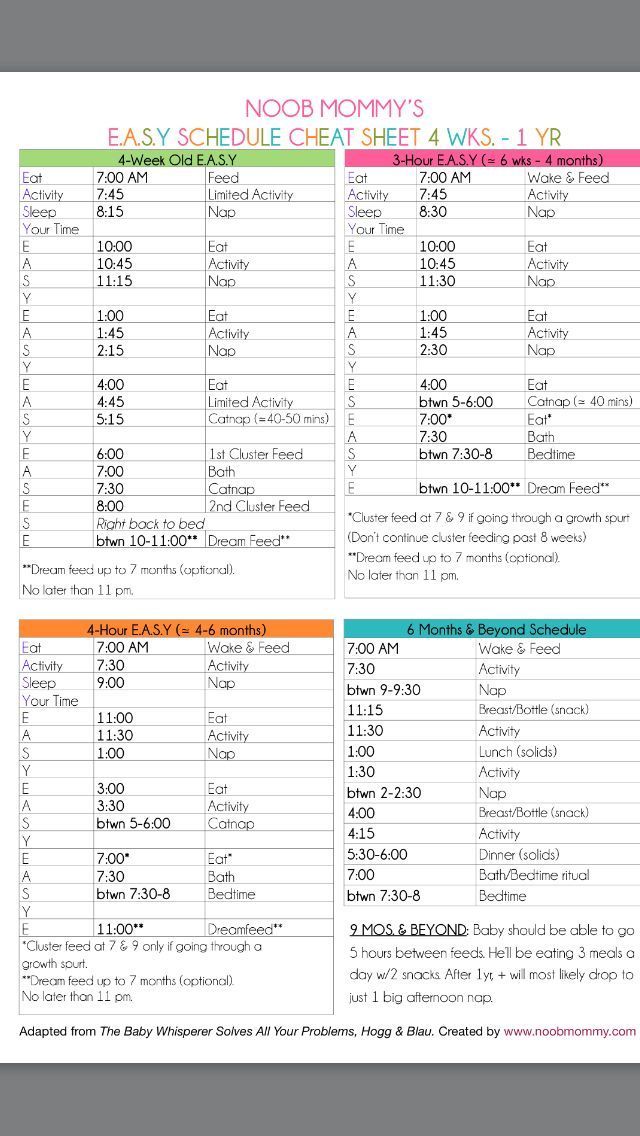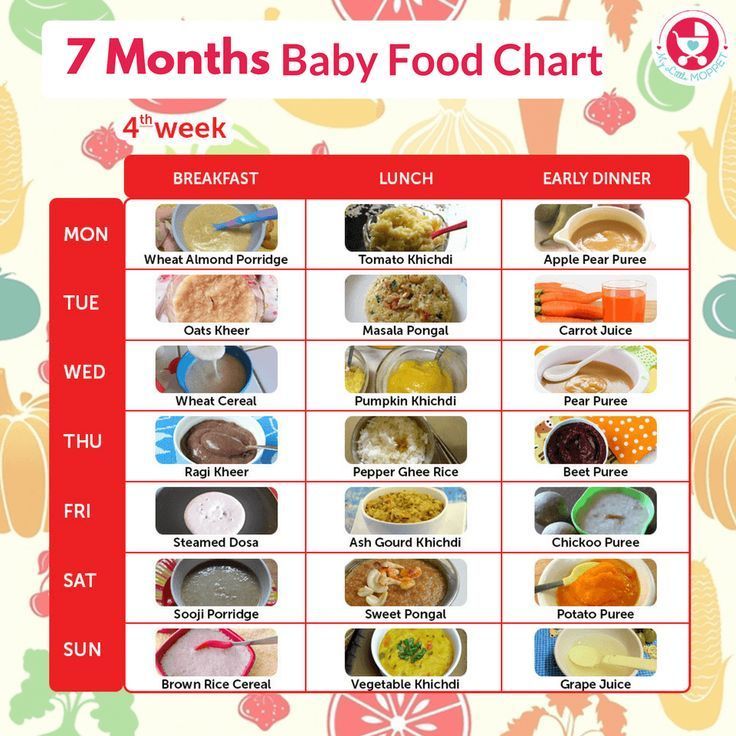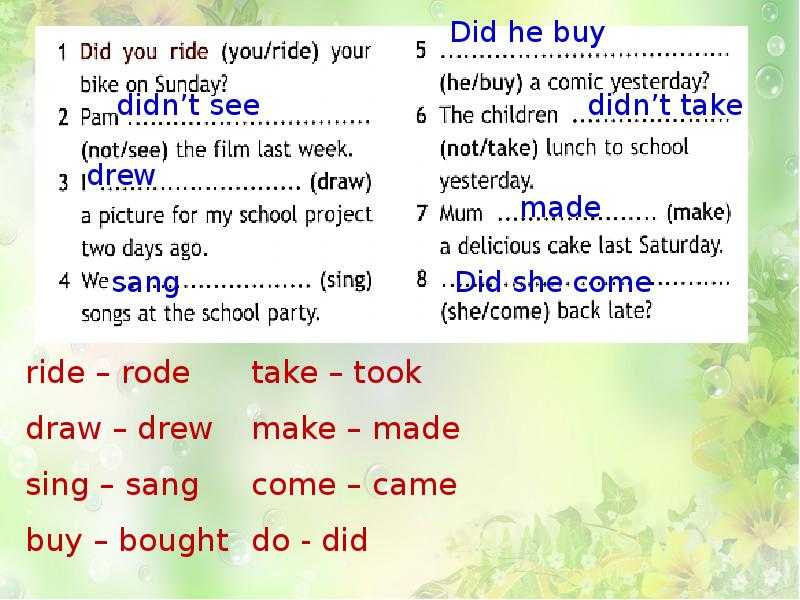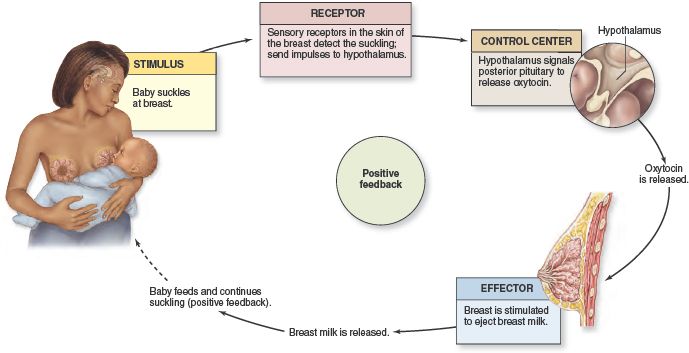Baby screaming during feeds
Baby Fusses or Cries During Feeding: Causes & Solutions
Is your baby fussy every time you offer the breast? Do they cry, making it hard to breastfeed?
I’ve been there and know how it can be distressing when your baby is irritable while breastfeeding. It can make you question whether you’re doing something wrong and why the experience isn’t turning out how you imagined.
To help set your mind at ease and offer you some hope, we’ll share everything we know about what makes a baby upset during breastfeeding.
We’ll help you determine the cause of your baby’s fussiness. We’ll also offer our solutions so your breastfeeding sessions can return to being a peaceful experience you both enjoy.
Causes of Baby Crying During Feeding
Half the battle is finding out why your baby is crying and fussing when they should be enjoying their time at the breast. You want to know your baby is getting enough milk and thriving. But it’s hard to be sure when they always latch on and off, crying in between.
Let’s discuss some possible causes.
1. Baby Isn’t Latching On
If your baby is fussing or crying, getting them to latch on to feed can be challenging. Whether overtired, overstimulated, or just plain hungry, a crying baby is unlikely to latch.
The Solution
Begin breastfeeding while your baby is calm and awake, before they get too hungry. Watch for early hunger cues such as rooting, smacking their lips, sucking their hands, sticking their tongue out, or waking from sleeping. Crying is a late sign of hunger.
Swaddling your baby and holding them close, dimming the lights, or moving somewhere peaceful and quiet might also help.
Another thing you can try is squeezing a few drops of milk onto your breast to entice your baby to latch on. The taste and smell of the milk might stimulate them to feed. Changing position or changing breasts can also work sometimes (1).
2.
 The Milk Flow Is Too Fast or Too Slow
The Milk Flow Is Too Fast or Too SlowPaying attention to when your baby starts to cry might shed some light on the reason.
If your baby is fussier in the morning, it could be that your overly full breasts release too much milk too quickly. Your breasts may have become engorged with milk during the night and your baby can’t cope with this forceful let-down.
Conversely, if they are fussier in the evenings, maybe the milk release is too slow and they get frustrated. They become impatient, waiting for the flow of milk that comes with the let-down, and start crying.
The Solution for Fast Milk Flow
A strong release of milk, or overactive let-down, can make your little one choke, gag, or cough when they’re feeding. They might unlatch from the breast because they don’t like or can’t cope with the fast flow. They could also be gulping a lot of air with the milk and getting gassy, which causes more upset.
These are some of the things you can do to counteract this:
- Express before feeding: Pumping some of your milk before feeding, or expressing by hand, can help slow down the flow.
 After you feel the first let-down pass and you see the flow is slowing, put your baby to your breast.
After you feel the first let-down pass and you see the flow is slowing, put your baby to your breast. - Lie back when nursing: Adopting a laid-back feeding position with your baby lying on top of you can slow the flow. You could latch your baby on and then lie back against some cushions or pillows. Milk will flow against gravity and won’t pour down your baby’s throat.
- Burp regularly: When your milk is flowing fast, your baby may gulp lots of air while feeding. A gassy baby is a fussy baby, so burp them regularly, during and after the feed.
- Feed one side at a time: Alternate your breasts at each feed. That way, once the flow slows down on the breast your baby is feeding on, they might stop fussing.
- Take a feeding break: If your flow is too much for your little one to cope with, remove them from the breast for a few seconds. Let the excess milk leak onto a towel, and offer the breast again when it stops.
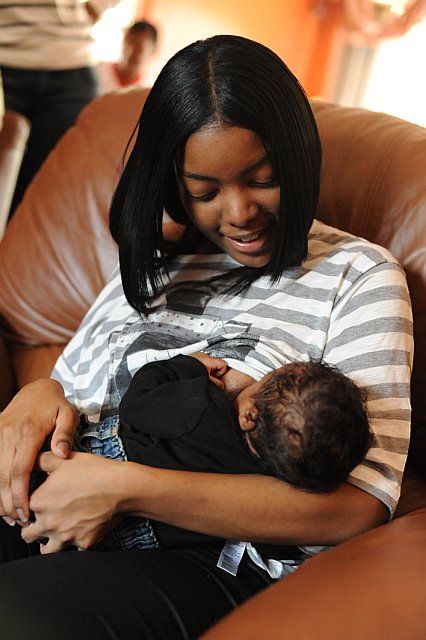 This might make your baby fussier for a while, but it will pay off in the long run.
This might make your baby fussier for a while, but it will pay off in the long run.
The Solution for Slow Milk Flow
Your baby is hungry, but your milk is not coming quick enough. Just as we can get “hangry” when we need food or drink and aren’t getting it, our babies can too!
Luckily, we have some things you can try to combat a slow flow or delayed let-down:
- Stimulate the flow: Either pumping or hand expressing a little milk before latching can kick-start your let-down reflex. Once you have a steady flow, then you can put your baby to your breast.
- Warm compress: Use a warm towel or compress for a few minutes to stimulate letdown. Place it on your breasts just before each feed.
- Massage: Massaging your breasts before and during a feed can help the milk flow faster.
- Try breast compressions: If you notice your baby is about to start fussing and might unlatch, squeeze your breast.
 This will give your baby a burst of milk, keeping them actively feeding.
This will give your baby a burst of milk, keeping them actively feeding. - Get comfortable: Breastfeeding a fussy baby can be frustrating for you as well. Try and feed in a relaxing position, away from distractions. It’s a perfect time to just concentrate on your baby.
- Make sure your baby gets enough milk: All that fussing and crying might make your little one tired, and they may fall asleep at the breast before they’ve eaten enough. Try and stimulate them to continue feeding by tickling their foot or stroking their cheek. The more your baby feeds, the more milk you will produce.
- Some dos and don’ts: When breastfeeding, avoid smoking and alcohol. Also, try and steer clear of soda and coffee. All these could affect your milk production. Ensure you eat a balanced diet and stay hydrated, too (2).
3.
 Baby Is Going Through a Growth Spurt
Baby Is Going Through a Growth SpurtThere are times during a baby’s first year of life when they go through growth spurts. Their weight and length will increase, as will their head circumference.
Your baby may want to feed more often during a growth spurt and can become fussy. It’s not uncommon for a baby to suddenly feed up to 18 times in 24 hours.
While one does not necessarily lead to the other, it makes sense that a growth spurt and sudden, frequent feeding go hand in hand. Your baby will need more milk to support the growth spurt, and nursing more will naturally boost your supply.
During this time, babies can also become fussier than usual. They might appear unsettled and clingy, and they may not sleep as well as usual.
Growth spurts generally happen several times during the first year. These are the ages when they are likely to occur:
- Two weeks old.
- Three weeks old.
- Six weeks old.
- Three months old.
- Six months old.
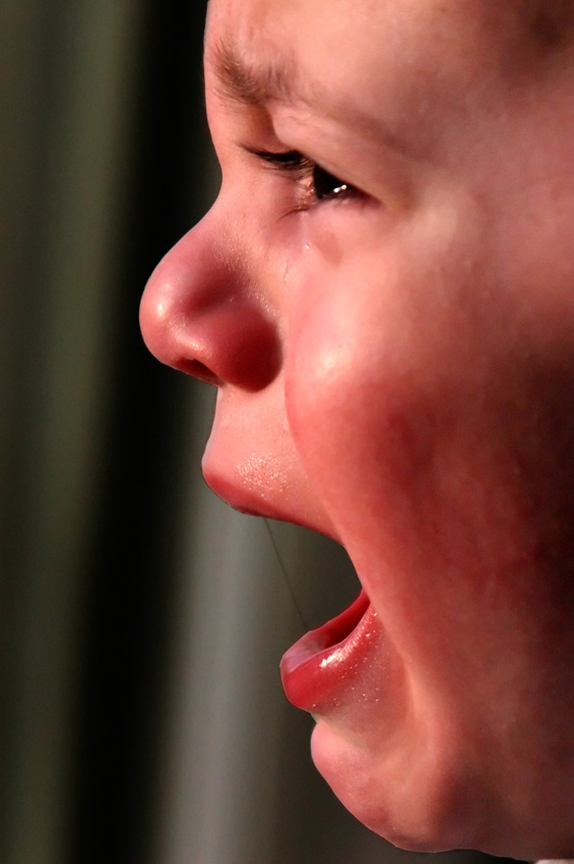
Not all babies will follow this timetable; some might have more growth spurts or they may be at different times. For some babies, there might be no change in their behavior when they have a growth spurt.
The Solution
During this time, follow your baby’s lead. Respond to their needs, whether it’s more feeds, extra cuddles, or just quiet time and a nap.
Your baby might get fussy if you aren’t producing as much milk as they want. It can take a day or so for your supply to catch up with the demand. The more you let your baby feed, the more milk your breasts will produce.
Your baby may seem hungry after normal feeding time, so don’t be afraid to nurse again. Keep yourself feeling good during this time by staying hydrated and eating balanced meals. Remember, you are not Superwoman; let family and friends help with chores and shopping while you spend time with your baby.
4. Baby Is Going Through a Developmental Stage
Your baby is constantly developing mentally and learning new skills as they go along. It can be a bit overwhelming and confusing for them, and there might be weeks when they are fussier than usual. Sometimes called the “Wonder Weeks,” it can explain mood changes in your baby (3).
It can be a bit overwhelming and confusing for them, and there might be weeks when they are fussier than usual. Sometimes called the “Wonder Weeks,” it can explain mood changes in your baby (3).
You might find that during these periods, your baby becomes more curious and distracted while feeding. They might want to feed more or, conversely, not stay latched on long enough for a good feed. They can be cranky and fussy and cry a lot when you’re trying to breastfeed.
The good news is that these periods generally only last a few days before your baby returns to normal behavioral patterns.
Not all babies will fit into the pattern of wonder weeks and develop at different times.
The Solution
Feed your baby in a quiet room where there are likely to be fewer distractions. There’s nothing worse than having a situation where your little one latches on, then hears their dad or sees the dog and stops feeding (or worse yet, turns their head with your nipple still in their mouth!).
Trying to get your baby to pay attention can make them fussier and be a constant battle.
You might also find that your baby is fussier and wants to feed more often during these periods. Again, take your cue from them, and give them the extra time and attention they need.
5. Baby Needs to Burp
Babies often fuss, cry, or pull away from the breast when they need to burp. A fast flow of milk can exacerbate this. They can also swallow more air when they’re fussy or gulp down milk faster than usual if they’re over-hungry.
The Solution
Breastfed babies tend not to need burping as often as bottle-fed ones. However, there are times when gas can make them uncomfortable and they need to get it out.
If your baby is fussing, stop the feed and try and burp them. If you let them carry on feeding while they’re crying, then they can take in more air and make the problem worse. Eventually, it can end up with them spitting up.
It’s a good idea to burp your little one mid-feed, even if they don’t appear to be in too much discomfort. Try to do it when switching breasts or when your baby latches off the nipple.
Try to do it when switching breasts or when your baby latches off the nipple.
Other Reasons for Crying During Breastfeeding
We’ve looked at some of the main reasons your baby might cry while breastfeeding. There are a few other things that can cause this, including:
- Baby prefers one side: Your milk supply might be better on one breast than the other. This may be apparent if your baby only fusses when fed on one side.
- Teething: This can be a painful and uncomfortable time for your baby, and they might fuss more when feeding. You might first realize it’s happening when they clamp down on your nipple and you feel the teeth through the gums. I’m all too familiar with that pain! But trust me, your baby isn’t trying to hurt you; they just want to relieve their pain (4).
- Baby has eaten enough: If your little one starts fussing toward the end of a feed, this might be a sign they’ve had enough.
 Try offering the breast again a few times. If they don’t want it, move on. If you have ruled out any other causes for their crying, their little tummy might be full.
Try offering the breast again a few times. If they don’t want it, move on. If you have ruled out any other causes for their crying, their little tummy might be full. - Baby wants to be pacified: Your little one might be full but still wants to suckle. However, it can be frustrating for them when milk is still flowing. This could be an excellent time to offer a pacifier for them to suckle.
- Thrush: This fungal infection can affect your nipples or a baby’s mouth. If your baby has oral thrush, feeding will be uncomfortable, and they can get fussy. If you suspect this, contact your health care provider (5).
- Baby has a cold: Trying to feed and breathe through a stuffy nose simultaneously can be challenging for a little one. They will become fussy and break away from the breast a lot. Use a nasal aspirator to try to clear their nose, or ask your pediatrician for advice.
- Food sensitivity or allergy: While you might enjoy eating spicy food for dinner, your baby may not.
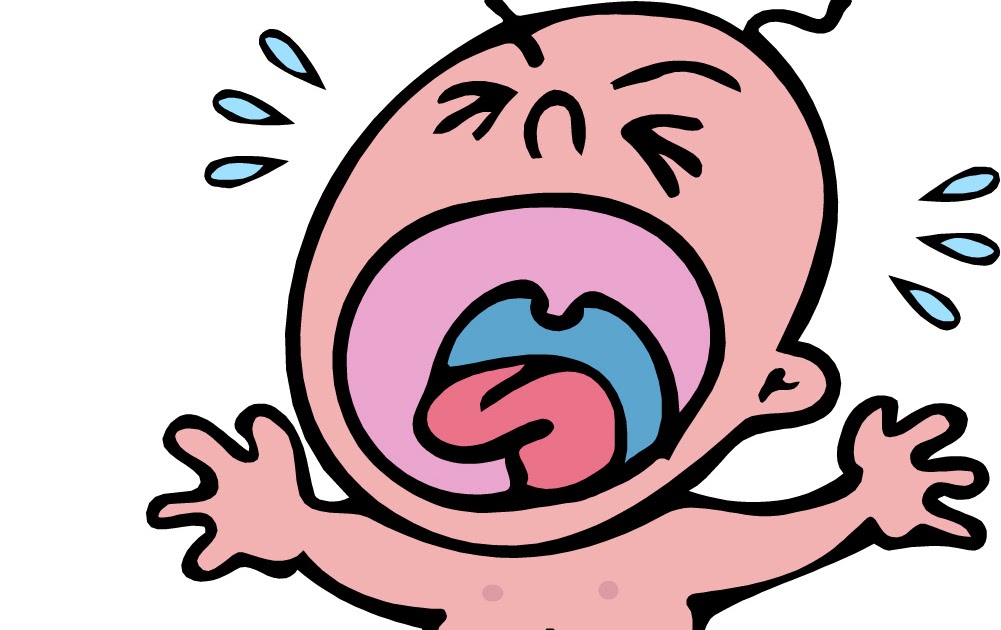 The flavor of the food you eat comes through in your milk, and your little one might not always like the taste or the smell. You might notice they are fussier when you have consumed certain foods they don’t like or are allergic to (6).
The flavor of the food you eat comes through in your milk, and your little one might not always like the taste or the smell. You might notice they are fussier when you have consumed certain foods they don’t like or are allergic to (6). - Reflux: Although it’s not very common in breastfed babies, sometimes food comes back up from a baby’s stomach. This can make them cry and feel uncomfortable when feeding (7). Speak with your baby’s doctor if you suspect this is causing your baby to be fussy or cry during breastfeeding.
Feedback: Was This Article Helpful?
Thank You For Your Feedback!
Thank You For Your Feedback!
What Did You Like?
What Went Wrong?
My baby fusses or cries when breastfeeding
By Kelly Bonyata, BS, IBCLC
© Lsantilli - Fotolia.com
Some babies will fuss, cry or pull off the breast during breastfeeding. There are a number of reasons why this might be happening. It’s pretty common to see this type of behavior at around 6-8 weeks, though it can occur at any time. If your baby is generally fussy (not just when nursing) see My baby is fussy! Is something wrong?
There are a number of reasons why this might be happening. It’s pretty common to see this type of behavior at around 6-8 weeks, though it can occur at any time. If your baby is generally fussy (not just when nursing) see My baby is fussy! Is something wrong?
Determining the problem
Here are some of the problem-solving steps I go through when my baby is fussy at the breast or a mother asks me why her baby is fussing while breastfeeding:
.
How old is baby? Most babies go through growth spurts during the first few days at home and around 7-10 days, 2-3 weeks, 4-6 weeks, 3 months, 4 months, 6 months, 9 months, etc. Many babies are fussy during growth spurts.
Is baby working on anything new developmentally? Babies who are starting to notice the world around them can be notoriously distractible. Any kind of new developmental step that baby is working on can affect nursing temporarily, whether it be fussy nursing behavior or simply more frequent nursing.
When is baby fussing? To figure out the cause it’s helpful to pay attention to when the fussy behavior happens, both during the nursing session and during the day.
If baby is fussy right when your milk is letting down (or immediately after), there’s a good chance that the fussy nursing is related to a fast let-down. If baby is fussy before let-down, or a few minutes into nursing (and a while after let-down), then baby may be impatient for the fast flow of milk that comes with let-down. Fussing at the end of a nursing session (or what seems to be the end) may mean that baby needs to burp, or is ready to finish nursing, or just wants to suck (and doesn’t want to deal with a new let-down at this point), or wants to continue nursing on the other side or with a faster flow of milk.
If the fussy behavior is mainly in the mornings, it might be due to a faster than usual let-down if baby has just had a longer sleep period and mom’s breasts are fuller than usual. If baby is fussier during evening nursings, it may be due to the normal fussy time that most babies have during the evening. Although most babies don’t react to foods that mom eats, some do. If you eat a particular food at about the same time each day (or most days) and baby has a regular time where she fusses during nursing, try not eating that food for a week or two to see if things improve.
If baby is fussier during evening nursings, it may be due to the normal fussy time that most babies have during the evening. Although most babies don’t react to foods that mom eats, some do. If you eat a particular food at about the same time each day (or most days) and baby has a regular time where she fusses during nursing, try not eating that food for a week or two to see if things improve.
Does fussing occur on both sides equally or only on one side? Most moms have a faster let-down and/or a more abundant milk supply on one side than the other, so if your baby fusses more on one side, it may be due to these differences.
What else is going on with baby? Is she sick or teething? Is something new or different going on in her environment? Has she started solids or is she trying a new food? Is she exhibiting other symptoms besides the fussy nursing?
Below are discussions of some of the different things that can lead to fussy nursing behavior. Keep in mind that the problem may also be a combination of several things.
Keep in mind that the problem may also be a combination of several things.
Does baby need to burp?
Many babies will cry, fuss, pull off the breast, etc. if they need to burp. Try to burp between breasts and after a feeding, but don’t worry if baby does not burp and is content. Breastfed babies overall don’t take in as much air during a feeding as bottle-fed babies do, so usually don’t need to burp as often. If baby has been crying before she nurses, or is so hungry that she nurses “frantically” or if mom has a fast let-down, baby could be taking in more air and may need to be burped more often.
Burping is usually only necessary during the first few months, though it may extend longer. Once your baby is moving more freely, she will be able to relieve the gastric gas herself. This usually will occur between the 4th and 6th month, but may be shorter in some children and longer in others.
If baby has a hard time burping, try burping more often during a feeding. The best burping position is one that applies firm pressure to the baby’s tummy. Placing baby over the shoulder way up so that there is pressure on baby’s abdomen often works well. Walking around while doing this might distract her long enough to get a good burp. You may even want to lie baby down on her stomach and burp her that way.
The best burping position is one that applies firm pressure to the baby’s tummy. Placing baby over the shoulder way up so that there is pressure on baby’s abdomen often works well. Walking around while doing this might distract her long enough to get a good burp. You may even want to lie baby down on her stomach and burp her that way.
Growth spurt
Babies often pull off and fuss during growth spurts. Most babies go through growth spurts, sometimes called frequency days, during the first few days at home and around 7-10 days, 2-3 weeks, 4-6 weeks, 3 months, 4 months, 6 months and 9 months (more or less). More growth spurt information in this link.
Distractible baby
If baby seems to be pulling off the breast at any distraction (real or imaginary), then see The Distractible Baby.
Forceful let-down
Some babies will pull off the breast soon after let-down if mom has a forceful let-down. Baby may be frustrated by the too-fast flow of milk with let-down. A too-forceful let-down can also cause excessive gas or spitting up/vomiting. There is more information here on symptoms of and how to deal with a fast let-down reflex.
A too-forceful let-down can also cause excessive gas or spitting up/vomiting. There is more information here on symptoms of and how to deal with a fast let-down reflex.
Slow let-down
Some babies get very impatient if mom has a slow let-down. There is more information here on speeding up a slow let-down reflex.
Baby wants a faster milk flow
Even very young babies can be quick to notice that pulling off, kneading the breast, etc. can cause an additional let-down, and can facilitate a faster, easier milk flow. Some babies become impatient with the slower milk flow following the initial fast flow at let-down. This may or may not be related to a slow let-down.
When a feeding begins at the breast there are drops of milk. Then when the initial let-down occurs (several seconds to a minute into the feeding), the milk flow speeds up quite a bit. At that time it may drip very quickly, squirt, or even spray. Some minutes later it slows again and the baby must continue to suck vigorously in order to elicit further let-downs. This pattern can continue through successive, multiple let-downs as long as the baby is continuing to nurse vigorously. Eventually, baby will learn that the flow will pick back up again if she’ll only continue to vigorously suck/swallow.
This pattern can continue through successive, multiple let-downs as long as the baby is continuing to nurse vigorously. Eventually, baby will learn that the flow will pick back up again if she’ll only continue to vigorously suck/swallow.
With bottle feeding, the flow is instant and continuous. The baby is required to work very little. Once a baby has had a bottle, especially a lot of bottles, she may begin to prefer the ease of bottle-feeding over the work of breastfeeding. She may become frustrated at the breast after the first let-down occurs and the flow of milk begins to slow.
If baby is getting bottles you might consider putting them away, at least for a while. When you must use a bottle, only use a newborn nipple for as long as baby will tolerate it so that she never gets a really fast flow of milk from the bottle, but has to work a little more to get the milk.
Sometimes babies of moms with oversupply or fast let-down will also get very used to the fast flow and object when it normally slows somewhere between 3 weeks to 3 months.
It can be helpful to do some breast compression when this fussiness starts or right before you expect it to. This will help speed up the milk flow again. Once compression stops helping, try switching baby to the other side when she begins to fuss and back and forth again (after using compression) as you need to.
Baby is done nursing for the moment
If baby is fussing after she’s been nursing for a while, and you’ve ruled out other causes, she may be in the process of changing her nursing pattern. Babies become very efficient at the breast with growth and maturity. They can milk the breast in a lot less time per feeding session than they required before. Baby’s frustration may just be a sign that she’s finished and wants to move on.
On a similar note, an occasional baby will just want to suck at the end of a nursing session and the flow of milk with let-down frustrates her. You might see if offering her a finger or pacifier (if baby is older than 4-6 weeks) to suck on during these times seems to help.
Baby prefers one side
Sometimes babies will refuse or fuss at a breast when the let-down is slower or too forceful, or the supply a bit lower. They in turn will prefer the side which lets down more/less quickly and in which the supply is more bountiful. See also: Lopsided! What can I do?
Fussy in the evening
Many young babies tend to pull off and fuss at the breast in the evening. See the article Cluster Feeding and Fussy Evenings.
Teething
Teething can cause fussy nursing behavior, as some babies experience gum discomfort with sucking. Baby might start to nurse, but then pull off and cry or fuss and not want to nurse anymore. See Teething for more information and tips.
Thrush
Frequent pulling off the breast can be a symptom of thrush.
Stuffy nose
A stuffy nose can cause fussy nursing behavior. If your baby has a stuffy nose and is having a hard time breathing and nursing at the same time, see colds & congestion.
Allergy or food sensitivity
Some babies with allergies or food sensitivities exhibit fussy nursing behavior. Often when there is a sensitivity to something in mom’s diet, baby will come to the breast hungry but when she tastes/smells something in the milk that will cause her GI distress, she pulls off, bats her head back and forth, etc. Sensitivities to foods in mom’s diet are rare. If this is the problem, you will most likely notice other symptoms, such as excessive spitting up or vomiting, colic, diarrhea, rash, persistent congestion or runny nose, or excessive gas. More information on food sensitivities in babies and links to more allergy information can be found in my article Dairy and other Food Sensitivities in Breastfed Babies.
Low milk supply
Low milk supply can cause baby to be fussy at the breast. If you feel that your milk supply may be low, see this page for more info: Increasing low milk supply.
Reflux
Reflux can result in baby being fussy at the breast. See Reflux and Breastfeeding for more information.
See Reflux and Breastfeeding for more information.
Tongue-Tie
Tongue-Tie can result in baby being fussy at the breast. See Breastfeeding a Baby with Tongue-Tie (Resources) for more information.
Why is my baby crying while feeding?
Hunger causes almost physical suffering to the baby: the level of glucose in the blood drops, the cells of the body do not have enough energy for growth and development, and all this is very unpleasant. That is why the baby is filled with loud, demanding crying with notes of disappointment and resentment. Well, how is it - they still haven't fed him - also to me, the parents are called! Previously, when babies were advised to feed strictly by the hour, hungry babies had time to cry almost before each feeding. There was even such a theory that crying is good for a baby - by doing so, he develops his lungs. In fact, his hungry cry does no more good for the respiratory system than your attempts to call a waiter in a crowded restaurant: you want to make an order, they don’t hear you, and sucks more and more in the stomach . .. Feed the child as soon as possible, even if he is hungry before the allotted time.
.. Feed the child as soon as possible, even if he is hungry before the allotted time.
Just colic
All babies go through a period of colic in the tummy. They arise due to the immaturity of the digestive system, which adapts to milk, formula, supplementary food and complementary foods. Enzymes are still lacking, beneficial bacteria have not yet properly populated the intestines, so it cannot cope with the food load, overflowing with gases: they burst its walls and cause paroxysmal pain. At the same time, the baby screams quickly and piercingly and tenses up: he frowns, blushes, presses his legs to his tummy or twists them, clenches his fists. The screams follow each other for hours, exhausting both the child and the parents. Having warmed up on the handles, he calms down (warmth reduces pain), but as soon as the baby is put in the crib, the crying starts again.
Are you breastfeeding? Eliminate legumes, cabbage, soda, chocolate from the menu
Lay the baby on his tummy, apply a diaper or heating pad ironed (for warmth), massage around the navel in a clockwise direction.
Give pharmacy infant tea with chamomile, fennel or dill (dill water) - it reduces the formation of gases.
Do not overfeed! And make sure that the baby does not swallow air during feeding: this happens if he does not suckle well to the chest or if the mixture does not completely fill the hole in the bottle during feeding. 50-70% of the gases accumulated in an infant are swallowed air!
Brain scream
The headache is very hard to bear. It seems that nature protected the baby from her, leaving the fontanelles uncovered. But if intracranial pressure rises quickly, and this system does not compensate for it, and also in the second half of life, when the fontanelles are almost closed, hypertension syndrome inevitably leads to headaches. She makes the baby cry in a special way: quietly, but continuously, monotonously, on one note. In such cases, you need to consult a neurologist.
Acute abdomen
Infants sometimes develop a very formidable condition - intestinal obstruction, in other words - volvulus (intussusception). It arises due to the inconsistency of the waves of peristalsis that move food through the intestines. If a wave is too strong, intussusception may occur. At the same time, the crying of the baby will change - there will no longer be screams, as with colic, but waves of a loud, desperate cry. The pain is repeated in attacks: between them the child calms down and even falls asleep, but then starts screaming and rushing about again.
It arises due to the inconsistency of the waves of peristalsis that move food through the intestines. If a wave is too strong, intussusception may occur. At the same time, the crying of the baby will change - there will no longer be screams, as with colic, but waves of a loud, desperate cry. The pain is repeated in attacks: between them the child calms down and even falls asleep, but then starts screaming and rushing about again.
When introducing a new formula or product to an infant's diet, start with mini servings
Urgently call an ambulance! Even if it turns out that this is still not intestinal obstruction, but gases, the child’s tummy hurts very much: let the doctor help him by using a gas tube.
Food is like trouble
Does the baby take the breast or the bottle and then throws it away and starts screaming sharply and piercingly? Another option is a high-pitched cry immediately after feeding. Crying occurs due to a sharp pain in the abdomen, provoked by a lack of the lactase enzyme, which is involved in the breakdown of milk sugar - lactose. Upon receipt of the first portions of milk, the intestinal walls contract intensely, and it itself begins to ferment, causing flatulence with a sharp bloating of the abdomen. And it hurts a lot - hence the crying! In addition, the baby remains hungry: milk is not digested and absorbed.
Upon receipt of the first portions of milk, the intestinal walls contract intensely, and it itself begins to ferment, causing flatulence with a sharp bloating of the abdomen. And it hurts a lot - hence the crying! In addition, the baby remains hungry: milk is not digested and absorbed.
Your doctor will give your baby lactase supplements or recommend a formula containing lactase. In many children, the synthesis of this enzyme improves in the second half of life. Then the child can be fed dairy products without the risk of provoking colic and crying.
Teething?
Does the baby have wet eyes all the time: does he whine slowly, then sobs at the top of his voice? Look into his mouth: it looks like his first incisor is making his way below! At the time of the eruption of the next tooth, children's immunity weakens, and the child easily catches a cold. To alleviate the condition of the child, lubricate the gum in the place where the tooth pecks with a special tooth-cutting gel for babies (it has anesthetic properties). Let him gnaw on the gear-cutting rings with some water inside (having cooled first).
Let him gnaw on the gear-cutting rings with some water inside (having cooled first).
Otitis begins
The child literally takes a few sips and suddenly breaks into a piercing cry! Tries to suck again - and screams again. It hurts the kid to do this, because with every sip he shoots in the ear. Shooting pain can wake him up in the middle of sleep, and then it will also be an awakening with a piercing cry.
Press on the cartilage that covers the ear canal. If the baby wrinkled, let alone cried, he has otitis media. Hurry up and show your little doctor!
I want to get my hands on it!
The baby woke up and sobbed: no one was around! Well-fed and dry, he lies in his bed and whines in all voices - he wants to go to his mother. Being in her arms is not a whim, but the vital need of a child, and often the only way to calm down.
Photo: Mikolette/E+/Getty Images
How did this article make you feel?
Why the baby arches and cries during feeding.
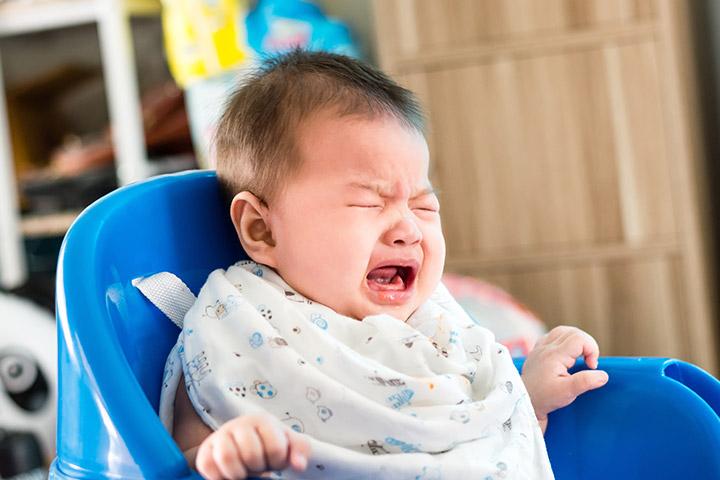 Baby crying while feeding
Baby crying while feeding Many parents complain that their child arches over and often cries. What could this strange behavior mean?
If your baby cries when feeding, it may well be that breastfeeding is not established correctly. If the baby cries during feeding, he may not latch on correctly and it is difficult for him to "get" milk.
Baby may have colic. The mother will help the baby cope with them if she herself adheres to a special diet, and the child is given herbal remedies based on dill and fennel, as well as bifido- and lactobacilli. It is useful to massage the baby, lay out his tummy.
Baby crying while feeding may mean that the baby feels discomfort or pain in the throat and mouth. Probable causes are thrush or pharyngitis, which require appropriate treatment.
Make sure that the baby's nose is not clogged, it can be difficult for him to breathe at the same time as eating, so the baby cries during feeding.
If the mother eats something spicy the day before feeding, the taste of food for the baby may not change for the better. You will notice how he either takes the breast, then throws it crying, and this is repeated over and over again. Control what you eat so that the baby does not cry once again during feeding, and the milk does not get a sharp taste.
You will notice how he either takes the breast, then throws it crying, and this is repeated over and over again. Control what you eat so that the baby does not cry once again during feeding, and the milk does not get a sharp taste.
Another reason why babies cry when feeding is a lack of milk. It is not difficult to check whether this is really the reason - you need to weigh the baby before and after he eats. Count wet diapers based on the normal amount of urination for a child of his age
It is not uncommon for a child to cry and arch over due to high muscle tone. To confirm or reject the assumption, you can try to pull the baby's head to the chest so that the chin touches it. If this cannot be done or there is a clear opposition, then you should seek help from a specialist.
The doctor will prescribe a massage for the baby and recommend rubbing the neck and lower back area with special gels. It is also useful to carry the baby in a “column” and arrange herbal baths with the addition of a decoction of soothing herbs (melissa, mint, chamomile, valerian root).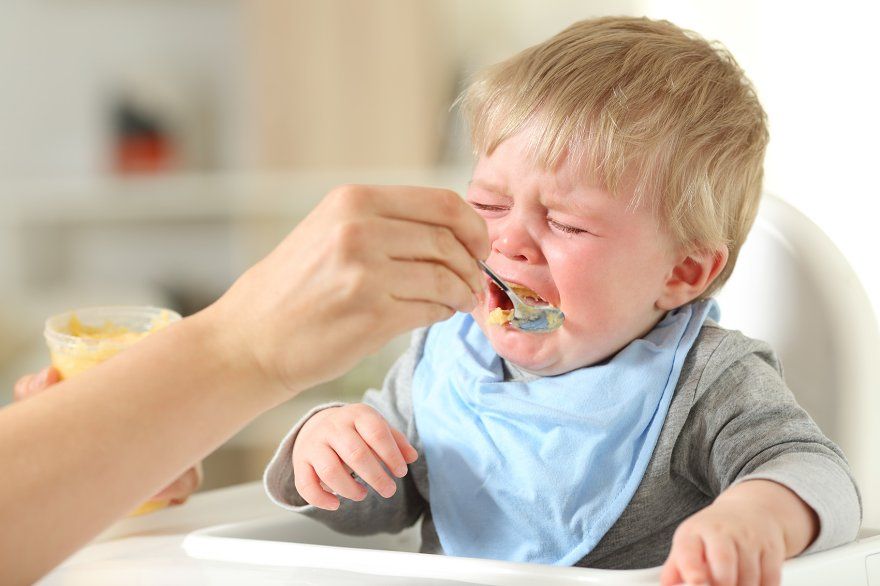 An indication of neurological problems may also be the fact that the child arches in a dream.
An indication of neurological problems may also be the fact that the child arches in a dream.
If your baby is crying while formula feeding, check the temperature of the food in the bottle to see if it is too hot for the baby.
Also check the size of the hole in the nipple. Perhaps it is small or, on the contrary, too big, and it is inconvenient for the baby to eat - it is difficult to suck out the mixture or the “flow” of milk chokes him, it is difficult for him to take large sips.
Often the baby cries during feeding. Moms worry, ask themselves: why? Crying is the only way for a newborn to tell that he is ill, that something does not suit him, or even hurts. Usually, feeding has a calming effect, the baby eats up and falls asleep. Crying during feeding, screaming, arching signal discomfort, what caused it?
The baby cries while feeding - a situation familiar to many mothers. What to do?
Why do children cry?
Discomfort may be caused by being wet or hungry. Everyone knows such common causes of crying, and they are easy to eliminate.
Everyone knows such common causes of crying, and they are easy to eliminate.
Often, at the first sign of displeasure from the baby, mothers begin to feed him, but if he does not want to breastfeed, they think that the breast is empty or too tight, they decide to supplement him with a bottle or switch to mixtures. However, the reason for crying may be different.
Doctors identify several possible causes. Discomfort can be caused by:
- improper feeding technique;
- physical condition of the baby;
- premature introduction of complementary foods.
Feeding routine and features
There are certain feeding rules that must be observed. It must be remembered that:
- The baby should be fed not according to the schedule established by adults, but at will. A healthy baby will determine which hours are suitable for eating and will observe the prescribed intervals. It is not worth forcing a regimen on him: until he is hungry, he will not suck out the norm, and then he will get hungry too quickly.

- Very important to the chest, so that he is comfortable. The inability to grasp the nipple unnerves the child, he arches his back and cries.
- Supplementation through the nipple is dangerous because it is much easier to suck than the breast. The baby quickly understands that it is not necessary to expend effort to get food, and refuses to breastfeed. Choosing a pacifier with small holes can solve this problem. Let the baby work hard, it is very useful for him.
- The baby does not want to eat if he does not like the taste of milk. A hungry baby sucks at first, but throws up the breast, cries and squirms. Then he tries to eat again, and everything repeats. This happens when the mother eats something spicy or odorous, the taste of milk has changed and the baby does not like it. A change in the taste of milk is also possible with the onset of a second pregnancy. Milk is bitter, and the child refuses it.
- Discomfort can also be caused by too much milk. At the first touch of small sponges, it begins to spurt, the baby chokes, arches and cries.
 To avoid trouble, you can express a portion of milk, but only if there is really a lot of it. In the future, the baby will learn to cope with this problem on his own.
To avoid trouble, you can express a portion of milk, but only if there is really a lot of it. In the future, the baby will learn to cope with this problem on his own.
Breasts that are too tight can cause babies to cry. In this situation, mommy just needs to express her breasts a little
Health related crying
Why does the baby cry during feeding? The baby may cry because something hurts him. Such crying is possible both in case of illness, and in the case when external causes interfere with normal nutrition.
The underdevelopment of the gastrointestinal tract of babies often leads to the fact that they are tormented by colic from the accumulation of gases. After childbirth, the child learns a new way of eating for himself, the intestinal flora is still being formed, and the production of enzymes is also still insufficient.
Gas in the tummy, caused by these causes, gives the baby a lot of trouble. Signs of colic can be leg twitching, a hard tummy, and attempts to arch. The baby blushes, frowns, arches.
The baby blushes, frowns, arches.
Help your baby quickly by stroking the tummy clockwise around the navel. Receiving, following a diet by a nursing mother, replacing a mixture containing palm oil with another one without this component will help to avoid this problem in the future. It is also recommended to put the baby on the tummy before feeding so that the gases go away, and after eating, hold him in an upright position, holding him behind his back, this will help him burp the air that has entered the intestines along with milk.
Painful conditions
- Crying can signal illness. Inflammation of the middle ear (otitis media) causes pain when swallowing. The disease is accompanied by fever, pressing on the ear causes a sharp pain. This disease will not go away on its own, it is very dangerous for people of any age, and especially for newborns. The suspicions that have arisen should be dispelled by the doctor, self-medication in this case is contraindicated.
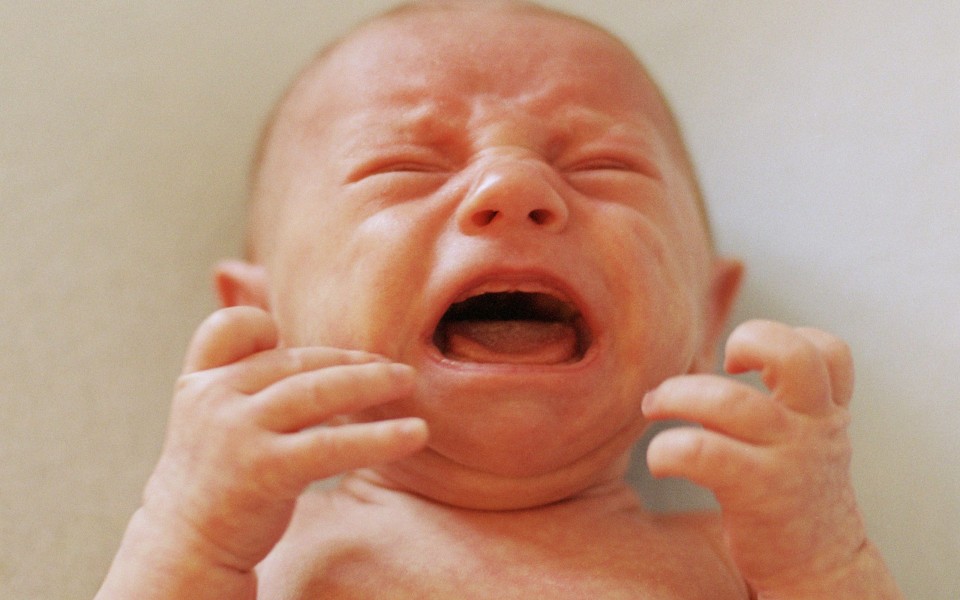
- Oral diseases also lead to crying while suckling. The mucous membrane of the mouth is affected by thrush or stomatitis, causing acute pain. The doctor must treat the pathology.
- Nasal congestion also prevents the baby from sucking, he chokes and chokes. A runny nose occurs due to allergies or SARS, in such a situation the disease must be treated, and as a first aid to eliminate the causes of discomfort, it is useful to clean the baby's nose with cotton turundas moistened with water or vaseline oil.
- Swallowing is also difficult with headache. Its occurrence in an infant can be a sign of a serious illness, so if other causes of crying during feeding are not identified, you should consult a neurologist.
- Increased muscle tone also leads to difficulty sucking. Only a doctor can determine the presence of a symptom, but beforehand, the mother is able to conduct a simple experiment. Gently pulling the child's chin to the chest, you need to check whether this causes difficulties, or the child can reach the breast with his chin without any effort.
 Identification of increased tone will require therapeutic measures that will give the best results, the sooner they are started. An increased tone is treated with the help of baths, massage, and other physiotherapeutic procedures. All appointments are made by the doctor, he also decides when the procedures can be stopped.
Identification of increased tone will require therapeutic measures that will give the best results, the sooner they are started. An increased tone is treated with the help of baths, massage, and other physiotherapeutic procedures. All appointments are made by the doctor, he also decides when the procedures can be stopped.
External causes
An external cause preventing the baby from sucking is fear (we recommend reading: ). A sharp sound, a bright flash of light unnerve the child, make him act up and cry. Nerves the child and the excited state of the mother. Screams, swearing excite him, frighten him, interfere with eating. It is necessary to enter into the position of crumbs, to keep peace and tranquility at home.
The little man, though small, already feels everything. Therefore, parents need to create a favorable environment in the family
Complementary feeding procedure
Some mothers try to feed their baby from 4 months, but this is wrong. Complementary foods are recommended to be introduced to the baby from 6 months, however, this period can be adjusted depending on various circumstances.
Complementary foods are recommended to be introduced to the baby from 6 months, however, this period can be adjusted depending on various circumstances.
The development of internal organs in all babies occurs at different rates. Children who are on breastfeeding are ready to receive complementary foods just in half a year. Babies who receive a mixed diet or only formula milk are slower to adapt to new foods, 6 months old are not yet ready to eat complementary foods. The baby will simply refuse to eat it, since the baby's body cannot absorb it. Premature introduction of new foods into the diet can lead to negative consequences:
- the baby will refuse new foods, will not even want to eat fruit purees;
- possible reactions from the digestive system, such as constipation or diarrhea, allergic reactions, expressed in rashes on the skin;
- crying and whims while eating.
What to do?
It will be possible to help the baby only if the cause of crying is correctly identified. By relieving the baby of the source of trouble, you can restore the calming effect of feeding.
First of all, the mother needs to examine the child and, if there is no reason to call a doctor, just calm him down by hugging and caressing the baby
To make the child calmer, you must follow some rules:
- temporarily limit the number of strangers in contact with the child of people;
- avoid loud conversations, and especially swearing, showdown in his presence: the baby feels the state of loved ones, it excites him very much;
- mother's voice, the warmth of mother's hands soothe the baby, so it is useful to hold him close to you, stroke his tummy;
- give the baby a breast that is comfortable for him to eat, too tight or full of milk can be drained a little so that it is easier for him to take the nipple and he does not choke;
- it is necessary to adhere to the usual feeding schedule for the baby;
- unwillingness to suckle may in rare cases indicate that the baby refuses breast milk, it must be transferred to artificial formulas;
- unwillingness to eat and even try complementary foods suggests that the baby has enough of the usual food, you have to wait until 1-2 months have passed, he will grow up and begin to eat complementary foods willingly.
When is the right time to see a doctor?
It happens that a mother is not able to determine herself what does not suit her child, all attempts to eliminate discomfort do not work. You should consult a doctor if:
- a breastfed baby has not walked for 3 days;
- the baby's sleep became restless;
- increased body temperature;
- the child looks lethargic;
- profuse regurgitation, vomiting;
- the baby cries a lot, it is very difficult to calm him down.
Dr. Komarovsky, well known to modern mothers, recommends that when crying during feeding, carefully examine the mouth, make sure that it does not have stomatitis. Dry air in the room can also make sucking difficult, causing the mouth to dry out. The problem can also arise due to malnutrition of a nursing mother. A possible cause may also be an irregular flow of milk, in this case, breast massage before feeding, drinking plenty of water will help. Colic in the intestines is best relieved with drugs based on simethicone. However, we must remember that it is dangerous to prescribe treatment for a baby on your own, you must definitely consult a doctor.
Often there is a situation in which the mother sees the dissatisfaction of the child when feeding, he cries and refuses to eat. In order to solve the problem that has arisen, it is necessary to understand the causes that cause it. If you can’t figure out the problem on your own, you need to get advice from a pediatrician.
There can be many reasons why a child cries during feeding:
- pain in the stomach and intestines, in cases where the child's digestive system has not yet been able to adapt to independent existence;
- penetration of air bubbles into the baby's tummy when he swallows mother's milk;
- a baby may simply not like the taste of his mother's milk if he gives up the breast immediately after taking it;
- an excessively strong milk stream, as a result of which the child simply cannot drink milk.
In addition, the crying of a child during feeding can be associated with problems in his digestive system, both congenital and acquired.
A baby cries while bottle feeding
A baby is bottle fed when the mother is unable to breastfeed naturally. It happens that breastfeeding alternates with bottle feeding, in other cases, the container completely replaces natural feeding. It is advisable to clearly imagine what exactly needs to be done if the baby cries while feeding from a bottle.
If the cause of the crying of the child when feeding him from a bottle is found in time and eliminated, the situation resolves itself. From the mother in such a situation, a fair amount of patience is required. And the reasons for what is happening can be the following.
The temperature of the mixture should be checked as it can be very hot. If the child is naughty, it is recommended to first simply cool the mixture.
The baby may cry while bottle feeding if it is uncomfortable to lie down. It is fashionable to try turning it on its side, holding it upright or planting it.
The baby cries while breastfeeding
The baby may cry during breastfeeding if he does not like his mother's milk. To prevent this from happening during lactation, the mother should adhere to dietary requirements, refrain from eating onions, spices, garlic and pepper.
The crying of a baby during breastfeeding can be explained by violations of the outflow of mother's milk. In such situations, it can be difficult for the baby to suckle the breast after he takes it into his mouth. This most often occurs in the very first days after childbirth, when the child has not yet learned to suck well. In the breast, in case of violation of the outflow of milk, a special plug is formed, which can cause blockage of the mammary gland and the formation of mastitis. To prevent this from happening, special preventive measures should be observed.
Mother's milk may simply not be enough, and in such cases the child remains hungry. In order for lactation to take place fully and without significant violations, the mother should drink warm teas every day. In such cases, you can feed the baby with additional milk formula.
The baby arches and cries during feeding
It often happens that the baby begins to arch and cry during feeding. The reasons for what is happening can be:
- neurological problems that are not directly related to the feeding process;
- colic in stomach and intestines;
- the child may be very dissatisfied with the volume and quality of the milk he drinks;
- the baby can simply be capricious.
Some mothers believe that this behavior of the baby can only occur during breastfeeding and not be observed during bottle feeding. However, this can happen in all cases and be explained by the same reasons. You need to find them out in order to fix them.
The baby pushes and cries during feeding
When feeding, the baby may not only cry, but also grunt and push. This behavior is explained by the fact that the baby simply cannot explain in words what worries him so much, therefore he is forced to react to what is happening in this way.
There may be several reasons for this. First of all, this behavior is caused by colic in the intestines. Similar disorders are observed in almost all newborns and should not be afraid of this. Also, the child often strains and cries when feeding with increased formation of gases in the intestines, as well as with painful cramps in the abdomen. It is recommended to properly feed the child so that excess air does not get into his tummy. It's best to keep him in a crouched position, this helps prevent unwanted air from getting into his tummy. In addition, it is better for the mother to stop eating foods that can cause gas in the baby's tummy.
The baby cries while feeding, what should I do?
In order to determine the course of action in the event of a baby crying during feeding, you should first of all understand the reasons for what is happening. There are a great many reasons for such behavior, in order to prevent their occurrence, the process of feeding the child should be properly organized.
How to feed your baby correctly
Proper feeding of the baby involves placing the baby and mother in the most comfortable position for them. Recommendations for doing this might be:
- the baby and his mother should be placed in the most comfortable position for both, for which it is recommended to lie on a sofa or a soft bed, keep the baby on its side, or press it to the body;
- the baby's head should be in a position slightly above his buttocks, while his neck should not be bent;
- do not use force to press the baby's head to the chest, you should only indicate the direction of rotation of the baby's head;
- should ensure maximum contact between the bodies of a nursing mother and a child, it is better to free the baby from clothes if possible.
If the process of feeding a child is organized correctly, he will always eat well, which will positively affect his development, growth and health.


